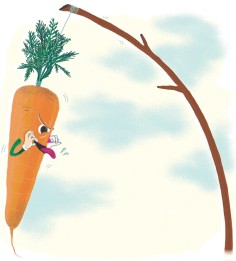
New research into losing offers lessons in sales and consumer behaviour
Just missing out on the sweet taste of victory in one instance can help motivate you for success in your next objective, new research suggests

Imagine the following scenario. You enter an auction that you are desperate to win. You are one of the last two bidders and the sweet taste of victory is almost yours. But, alas, you end up losing the final reward to the competing bidder. How do you feel?
Common intuition would suggest that losing this auction should make you feel dispirited. Similarly, much research suggests that while winning eggs people on, losing can be a demotivating factor.
But does it matter that you came so close to winning the auction? Would the fact that you were so close make you feel more demotivated, or would it actually help you?
I collaborated with JeeHye Christine Kim, a PhD candidate from Insead, on a forthcoming research article in Psychological Science, a journal of the Association of Psychological Science. Our key finding, documented in this article, is that anticipating winning a reward right up until the very end but eventually missing it leads to a motivational state that is intensified yet unsatisfying.
In this unsatisfied state, people seek out other salient rewards. In other words, when you nearly obtain a reward, it can be motivating in many intriguing ways.

While all participants lost the game, it was rigged such that some clearly lost, managing to find only one of the eight diamonds. Other participants managed to come close to winning, finding seven of the eight diamonds.
Among those players who came very close to finding all eight diamonds, some knew on the second trial that they had lost the game, while the others didn't know until the end that they would lose. Thus, this last group of participants was anticipating winning the game until the end.
We recorded how fast players walked to another booth to pick a free gift, a chocolate bar. We had predicted that those who were more motivated to seek out other rewards would walk faster for the chocolate. Our findings show that those participants who were anticipating winning the game until the very end walked faster to obtain the chocolate than those who clearly lost or those who knew early on that they were going to lose the game.
We ran many other experiments to explore when and how losing increases motivation. In one version, we measured how much participants salivated when viewing an image of money of high value, subsequent to clearly losing or nearly winning a pen in an unrelated game. We got the same results as in the previous experiment. Near winners salivated more looking at money in a subsequent, unrelated task, when compared to those who clearly lost.
In yet another experiment, we found that near winners on a game exerted more effort to earn money in another task, compared to those who clearly lost. Interestingly, near winners were more motivated than those who did win the game in the preceding task, showing that nearly winning can lead to enhanced motivation not only compared to clearly losing but also compared to actually winning.
To examine how nearly winning impacts real-life consumer behaviour, we ran another experiment at an accessory store. Shoppers who volunteered to play a lottery for a $25 gift certificate either clearly lost, nearly won or won the lottery. We found that shoppers who nearly won ended up spending more on accessories - a desirable product for these shoppers - as compared to those who won the lottery or those who clearly lost. In all of the cases, we find that nearly obtaining a reward can enhance motivation.
Our findings can help businesses in many ways. One of the key issues for most businesses is determining what drives motivation.
Sales force motivation, for example, is an important issue that many struggle with. Our findings show that managers who want to motivate their salespeople to perform better should think about giving feedback that highlights the individual's performance compared to someone slightly better. The fact that he or she was slightly behind this successful person should motivate the individual to perform better on another project.
Sales promotions such as lotteries are tools that every marketer carries in their arsenal. However, such lotteries are a double-edged sword, with marketers worried about the negative impact on consumer behaviour of losing the lottery. Our findings suggest that losing can actually have a positive impact - even compared to winning - depending on how the loss is framed.
In sum, we show that losing can in fact be motivating. However, for losing to positively impact employee and consumer behaviour, businesses need to think carefully about how it is framed.
Monica Wadhwa is an assistant professor of marketing at Insead